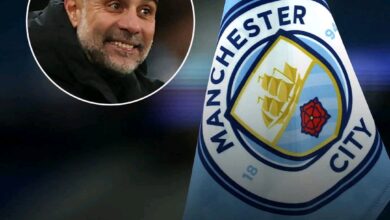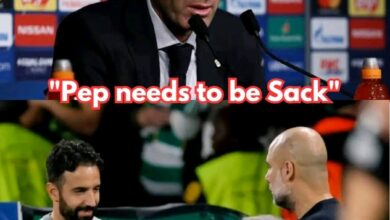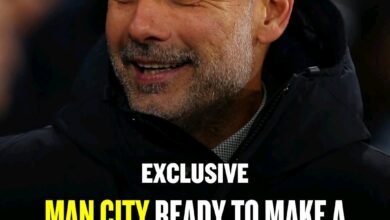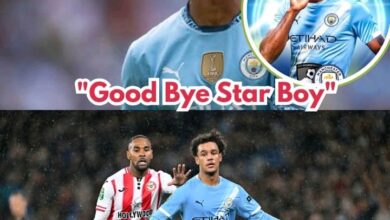Martin Zubimendi and the transfer U-turn that set both Liverpool and Arsenal up for success
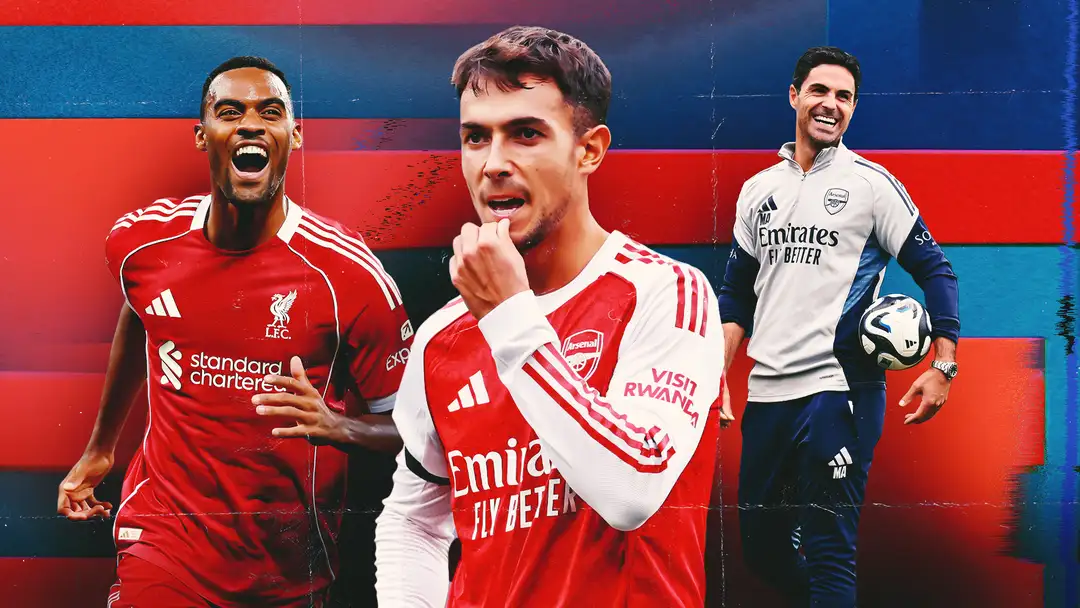
Football has always been full of unexpected turns, of moments when a single decision changes the direction of not just one player’s career but the entire path of two great clubs. That was exactly what happened in the case of Martin Zubimendi, the Spanish midfielder whose name has been written into the story of both Liverpool and Arsenal even though he only ever joined one of them. His U-turn in the transfer market last year created pain for Liverpool, joy for Arsenal, confusion for Real Sociedad, and in the end a sense that destiny had played a trick that somehow made both clubs stronger. It is one of those sagas where everybody thought there would be losers, yet now, standing at the point of another huge Premier League clash, there is a strange feeling that everybody actually won.
Less than twelve months ago, Liverpool fans were fuming. They had followed every whisper of the Zubimendi deal, every clue that suggested he was on his way to Anfield. Sporting director Richard Hughes believed the contract was as good as signed. The release clause was simple, the player had given his word, and Liverpool thought their long search for a specialist number six was finally over. After losing Fabinho and Henderson, after the struggles of playing Wataru Endo out of position, this was supposed to be the fresh anchor in midfield that would take Arne Slot’s new era to the next level. But just as the city prepared itself, just as fans dreamed of seeing the Basque midfielder in red, everything collapsed in one shocking weekend.
At Real Sociedad, his hometown club, emotions took over. His coach Imanol Alguacil knew that Zubimendi was torn, so he appealed not to contracts or tactics but to the heart. He showed him presentations about the culture of San Sebastian, about the food, the mountains, the fans who adored him. He reminded him of his promise after Euro 2024 to stay at Anoeta. He told him what leaving would mean to the Basque people who saw him not just as a player but as a symbol. The message landed. Zubimendi changed his mind, told Marca that La Real was his life, and walked away from the Liverpool deal. It was a gut punch for Hughes and Slot, and it left Liverpool scrambling without a Plan B.
But in football, disaster often hides opportunity. Arne Slot didn’t panic. He had only just arrived at Liverpool, and this was the first big test of his leadership. Outwardly, he stayed calm. He told the press that the squad was already strong, that Hughes had tried everything, and that Liverpool would move on. What he didn’t say was how much he was already planning behind the scenes. He had no new defensive midfielder, but he had Ryan Gravenberch, a young Dutchman who had been struggling for form under Jurgen Klopp. And in Slot’s mind, maybe, just maybe, the answer was already inside the team.
He called Gravenberch in early, told him he wanted to try something new. Instead of playing as an attacking number eight, what if he dropped deeper and became the shield in midfield? At first, Gravenberch was surprised. Back at Ajax, he had never enjoyed defending. He admitted he hated that side of the game. But Slot told him to trust the experiment. He told him to use his comfort on the ball, his long strides, his dribbling, to turn defence into attack in a way that very few holding midfielders could. Gravenberch agreed. And from that moment, a rebirth began.
The first signs came in pre-season when Liverpool played Manchester United in a friendly. Slot tested him as a six, and immediately it looked natural. Gravenberch was calm, able to collect the ball under pressure, able to drive forward, able to cover ground. Slot saw enough to gamble, and when the season began, he went with Gravenberch at the base of midfield. The gamble paid off spectacularly. Against Ipswich on the opening weekend, he looked solid. Against Manchester United at Old Trafford in just the second game, he dominated, helping Liverpool crush their rivals 3-0. In a matter of weeks, the player who couldn’t secure a place in Klopp’s side had become the beating heart of Slot’s system.
Gravenberch himself couldn’t believe the transformation. He told the club media how strange it felt, how he once hated defending but now loved stealing the ball, loved the feeling of breaking up play and turning it into something dangerous. He started to hunt for possession, winning more duels, making more interceptions, and driving Liverpool forward from deep. By the end of the season, he had more recoveries than anyone else in the squad, more interceptions than any other midfielder, and he was crowned the Premier League’s Young Player of the Season.
Arne Slot kept praising him. He spoke about his running power, about how he could win a duel and still play the right pass. He called it a special quality, that rare ability to dribble out of pressure as a number six. Normally, holding midfielders play simple passes, but Gravenberch could glide past his marker and create overloads. It changed the way Liverpool played. And it wasn’t just him who benefited. Alexis Mac Allister, who had been uncomfortable playing deep himself, was freed to move forward, forming a perfect double pivot with Gravenberch. Together, they gave Liverpool balance, control, and a platform that powered the team to their 20th league title, equalling Manchester United’s record.
And so, what once looked like a disaster turned into a blessing in disguise. Liverpool lost Zubimendi but gained a reinvented Gravenberch who became a star.
But what about Arsenal? They were watching too, waiting for their chance. For Mikel Arteta, Zubimendi was always a target. He tried to sign him in 2024, but the timing wasn’t right. When the chance came again, he moved quietly but decisively. By January 2025, it was already being whispered that Zubimendi had agreed to join at the end of the season. In July, the deal was official. Arsenal unveiled their new midfield general on their pre-season tour in Singapore, and naturally, the questions were about Liverpool. Did he regret rejecting them? Did he wonder what might have been?
Zubimendi explained calmly. He said that at the time, it wasn’t right to leave Sociedad. He still had things to learn, still wanted to stay loyal. But when Arsenal came again, the moment felt different. He spoke about Arteta as a top coach, about wanting quality guidance for the next stage of his career. He believed he had found that in North London. He made no apologies for the U-turn, no regrets for snubbing Liverpool. To him, it was just about timing and trust.
For Arsenal, it could be the missing piece. Declan Rice is already a monster in midfield, but adding Zubimendi gives Arteta flexibility. They can play together, one covering, one pushing forward, or rotate depending on the opponent. Just as Gravenberch unlocked Mac Allister at Liverpool, Zubimendi might unlock even more out of Rice and the Arsenal attackers
And so here we are, one year after the drama, with Liverpool and Arsenal about to meet again in the Premier League. Zubimendi in one camp, Gravenberch in the other. Two clubs shaped by the same transfer story, two managers who turned disappointment into opportunity, and two midfields that could define the title race. It is rare in football that everyone comes out a winner, but perhaps this is one of those rare cases.
Liverpool fans no longer complain about missing Zubimendi. They sing for Gravenberch, the unlikely hero. Arsenal fans celebrate their new Spaniard, seeing him as the man to take them beyond last season’s frustrations. Even Real Sociedad got an extra year of loyalty from their hometown boy before he moved on. And as the sun sets on the eve of Liverpool versus Arsenal, the whole saga feels like fate. A twist of destiny that set two giants on a collision course, stronger than ever, with everything still to prove.
This is football. This is why it captivates millions. A rejected transfer, a sudden U-turn, a broken deal that somehow built champions. Tomorrow, when Zubimendi and Gravenberch stare across the pitch at each other, it won’t just be a battle of midfielders. It will be the living proof that in this sport, even heartbreak can become history, and even rejection can lead to triumph.
